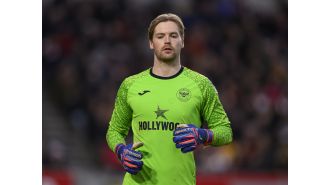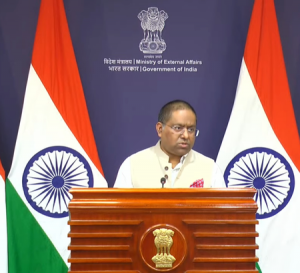The Army and The Rock's $11 million deal turns sour due to the actor's failure to fulfill his end of the agreement.
The Army had doubts about the success of a partnership with the UFL due to the low reach and comparison to a previous deal with NASCAR.

In the beginning of 2024, a partnership was announced between the United States Army and the well-known actor and athlete, Dwayne "The Rock" Johnson. The deal, worth $11 million, also included a component similar to an NIL (Name, Image, Likeness) deal. However, recent reports reveal that the Army is now claiming that Johnson did not fulfill his end of the agreement.
According to Fortune, the Army's decision to enter into this deal was due to their struggles in recruiting male soldiers since 2013. Over the past decade, there has been a significant decrease of 35% in male enlistment. In an effort to address this issue, the Army signed a deal with Johnson's United Football League, a lesser-known league that serves as an alternative and pathway for players towards the NFL. The Army saw this as an opportunity to leverage Johnson's popularity and influence to attract potential recruits.
The agreement stated that Johnson was required to make a specific number of posts on his social media platforms related to the Army. This was a crucial aspect of the deal, as it was intended to promote the Army to a wider audience. However, it now appears that the Army was not satisfied with the results they received from Johnson. They are unable to fully evaluate the impact of their investment until all aspects of the deal, such as Army branding on team uniforms and fields, high school clinics, and on-field activations, are completed.
A spokesperson for the Army stated that while the partnership allowed them to increase awareness and engage with a wider audience, they are unable to fully assess the results until all marketing elements are fulfilled. Megan Sweeney, a former senior advisor for communications at the U.S. Department of Defense, believes that the Army did not fully understand what they were getting into with this deal.
Sweeney states that while the Army may have expected to work closely with Johnson, they instead ended up with a partnership with a minor football league. She also points out that the Army allegedly did not receive the level of social media exposure that they were promised by Johnson's team. This could potentially damage Johnson's reputation as a brand ambassador, and it highlights the importance of including provisions in contracts to protect both parties.
Military.com obtained documents that show Johnson only made two out of the five promised social media posts. These posts were reportedly valued at $1 million each, based on Johnson's 396 million Instagram followers. However, despite the significant investment, the partnership did not yield a single recruit for the Army. It is even suggested that it may have had a negative impact on their enlistment numbers. The Army is now seeking to recover half of the deal's value, which amounts to $6 million.
Laura DeFrancisco, a spokesperson for the Army's marketing department, stated that they are currently working with the UFL to determine the final cost. However, within the military branch, there were doubts about the success of this partnership, as the UFL was not well-known and was seen as a potential obstacle to achieving their goals. This was similar to a failed $88 million deal that the National Guard had with NASCAR. Despite these concerns, the Army's Chief of Staff, Gen. Randy George, was able to push the deal through.
In response to the issues with Johnson's social media obligations, George's spokesperson, Col. Dave Butler, stated that while it was unfortunate that Johnson was unable to fulfill his duties, he remains a valuable partner to the Army. The Army is now working with the UFL to renegotiate the contract and ensure a more balanced agreement. Ultimately, it seems that the Army still values their partnership with Johnson and sees him as a valuable asset to their marketing efforts.
8 Views










